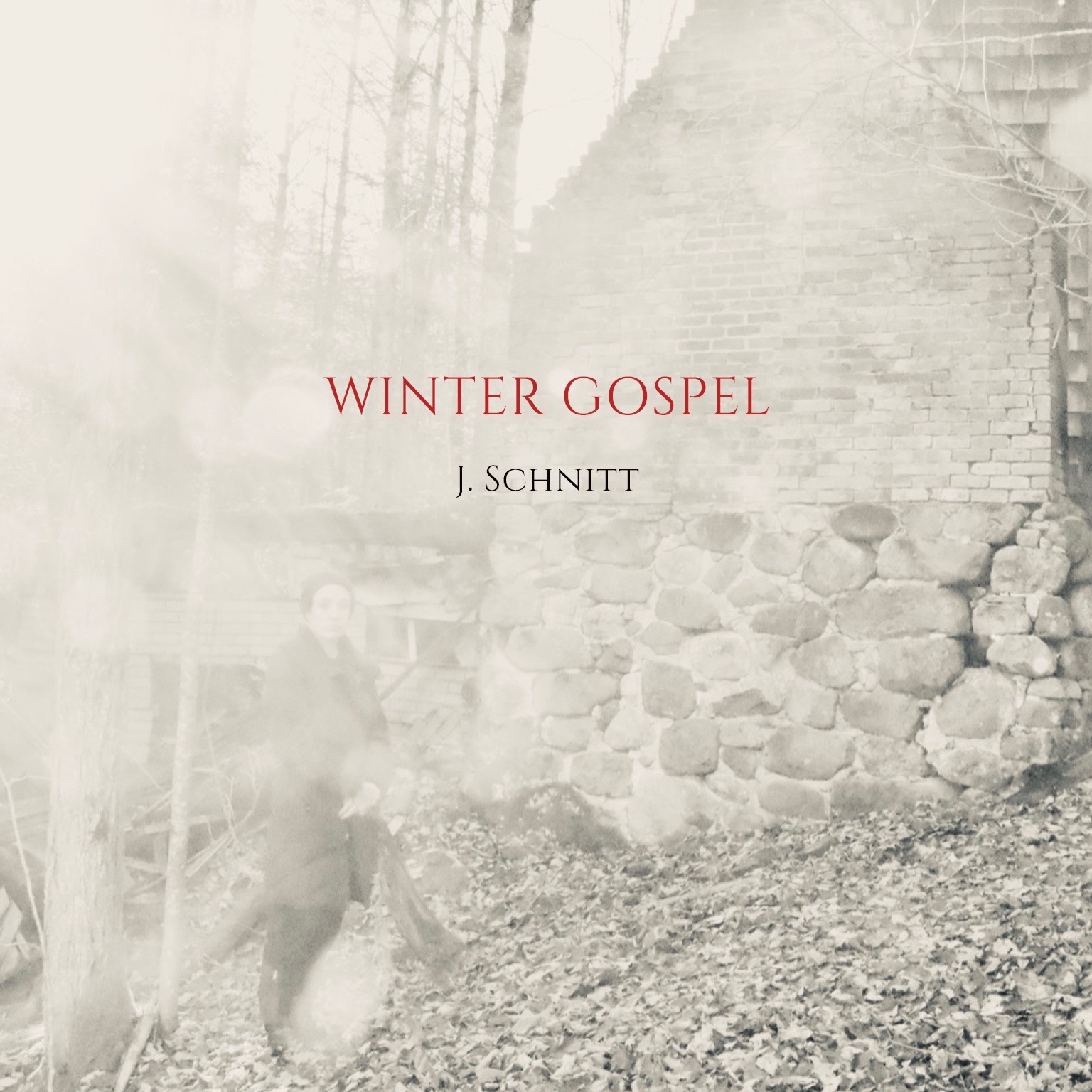

On his website J. Schnitt, a singer songwriter from Utica, references a quote from an unnamed review that refers to him as “the Bob Dylan of Central New York”. An ambitious claim, a flattering compliment and, as of now, only half true.

Dylan’s greatness was his uncompromising ability to craft songs that made his Nobel Prize winning songwriting its focal point no matter what else surrounded it. In a 2016 profile Rolling Stone said, “what set Bob Dylan apart from everybody was how he wielded language.” Depending on who you ask he either never could or never cared about making the voice that wielded that language sound “good”. But with Dylan it didn’t matter how he sang rather what he sang about.
On his newest release, Winter Gospel, J. Schnitt, delivers complex, lyrics in the best tradition of folk singer-songwriters but he does it with someone else’s voice. The album’s weakest moments are when he masks his true voice and, in turn, his true self. To be like Dylan you have to give your full self over to the music, flaws included. Only then can your virtues shine.
J. Schnitt’s virtues are his nimble guitar playing which offer up a variety of melodies that, while still keeping the album firmly ensconced in the easy listening subgenre, avoid repetitiveness and thus boredom. From the dramatic strumming of “High Crimes” to the subdued melancholy of the legato chords in “The Art of Giving Up” J. Schnitt composes songs that match his undeniable songwriting talent. And when his actual singing doesn’t, he shouldn’t run from it. He should embrace it.

In the album’s standout track, “Skipping Stone”, J. Schnitt sings “I was your skipping stone/thrown across the water/and as I sank below you picked up and grabbed another”. An analogy striking for its originality and descriptiveness. The emotional desolation of being callously replaced by a former lover told through the simplicity of a childhood pastime. It’s a feat of songwriting that should be lauded for its unique depiction of lost love. But it’s a feat that’s dampened by the contrived falsetto J. Schnitt uses when he repeatedly strains the word “thrown” to affect the sentimentality expected from the dulcet tones of singer-songwriters performing acoustic love songs. In fact, the song’s best vocals are the appealing way he coaxes “water” and “another” into rhyming. The soothing naturalness of his voice as he does so leaves you wondering what a full album of J. Schnitt’s moving lyrics sung in his real voice would sound like.
It matters that the voice he uses is entirely his own because the songwriting deserves it. In an interview with 315 Music J. Schnitt said, “it was time for me to get back to writing something from a more personal space. To look inward.” It’s a promise J. Schnitt delivers on throughout Winter Gospel.
On the introspective and crooning “What You Can’t Let Go” he isn’t just insecure but concerned he might always be. “I’m still looking for a way to shake this feeling I’ll always be wrong,” he pleads with himself. And on the album’s closer, the story song, “Rabbit in the Road” he recounts the story of his parents’ enduring relationship. Still, he continues to use the facsimile of another singer’s pitch perfect, choir boy harmonies instead of his own voice. In a well written, evocative song about the frustrating nature of insecurity or an ode to parental love and affection it’s better to communicate through the rasps, yelps, bleats, and caws of your own imperfect voice than by simply trying to sound “good”. That’s the difference between being a great singer and a great vocalist, like Dylan was.
If folk music is the language of Americana and authenticity its currency, then you can’t say anything authentic if you’re faking an accent. The people came for J. Schnitt so give them J. Schnitt.
The post “Winter Gospel” Masks J. Schnitt’s Flaws; It Shouldn’t appeared first on NYS Music.


![Billy Spoons: Watch Hunter The Spoon Man Absolutely Crush Billy Strings Songs On Spoons [Videos]](https://utterbuzz.com/wp-content/uploads/2024/11/billy-spoons-watch-hunter-the-spoon-man-absolutely-crush-billy-strings-songs-on-spoons-videos-238x178.jpg)
![Steve Earle Leads Benefit For Autism Education With Jackson Browne, Margaret Glaspy, More In NYC [Photos/Video]](https://utterbuzz.com/wp-content/uploads/2024/11/steve-earle-leads-benefit-for-autism-education-with-jackson-browne-margaret-glaspy-more-in-nyc-photos-video-238x178.jpg)




